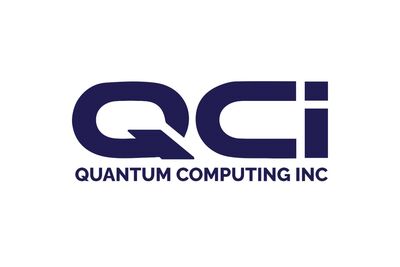Real Estate Transparency Crackdown: FinCEN Tightens Grip on Title Company Reporting
Companies
2025-04-15 13:52:06Content

In a groundbreaking move to combat financial secrecy, new regulations are compelling title companies to unveil the hidden identities behind shell companies purchasing residential properties without traditional financing. These innovative orders aim to pierce through the veil of corporate anonymity, requiring detailed disclosure of the actual individuals who ultimately control these complex corporate structures.
By mandating transparency in real estate transactions, regulators are taking a significant step toward preventing money laundering, tax evasion, and other potential financial crimes. Title firms must now conduct thorough investigations to identify and report the genuine beneficial owners behind shell company purchases, bringing unprecedented levels of accountability to the real estate market.
This regulatory approach represents a critical effort to increase financial transparency and ensure that property transactions are conducted with clear, verifiable ownership information. Homebuyers, investors, and law enforcement agencies will now have greater insight into the true nature of property ownership, helping to create a more open and trustworthy real estate landscape.
Unmasking the Shadows: How Title Firms Are Revolutionizing Property Ownership Transparency
In the intricate landscape of real estate transactions, a groundbreaking shift is emerging that promises to dismantle the complex web of anonymous property ownership. As shell companies have long obscured the true identities behind residential property purchases, regulatory bodies are now implementing stringent measures to bring transparency to the forefront of real estate transactions.Unveiling the Hidden Owners: A Transformative Approach to Property Acquisition
The Complex World of Shell Company Property Acquisitions
The real estate market has long been a labyrinth of complex ownership structures, where shell companies have operated in the shadows, concealing the true beneficiaries of property transactions. These corporate entities, often registered in jurisdictions with minimal disclosure requirements, have created a significant challenge for regulators and transparency advocates. The ability to mask true ownership has not only complicated property records but has also potentially facilitated financial misconduct and obscured legitimate property interests. Historically, shell companies have provided a veil of anonymity that protected investors and property owners from public scrutiny. However, this opacity has raised significant concerns among regulatory bodies, who recognize the potential for money laundering, tax evasion, and other financial improprieties. The intricate network of corporate structures has made it increasingly difficult to trace the actual individuals behind property acquisitions.Regulatory Intervention: A New Era of Ownership Disclosure
Recent regulatory orders represent a pivotal moment in real estate transparency. Title firms are now mandated to conduct comprehensive investigations into the ownership structures of non-financed residential properties. This directive requires a meticulous approach to identifying and documenting the genuine owners behind shell company facades. The implementation of these new requirements demands sophisticated investigative techniques. Title firms must now develop robust verification processes that penetrate multiple layers of corporate structures. This involves cross-referencing corporate registrations, analyzing ownership chains, and potentially engaging with international databases to confirm the true beneficial owners of properties.Technological Innovations in Ownership Verification
Advanced technological solutions are emerging as critical tools in this new landscape of property ownership transparency. Artificial intelligence and machine learning algorithms are being deployed to analyze complex ownership structures, identifying patterns and connections that might escape traditional investigative methods. Blockchain technology is also showing promise in creating immutable ownership records. By establishing a transparent and tamper-proof ledger of property ownership, these technological innovations can provide unprecedented levels of clarity and accountability. The integration of such technologies represents a significant leap forward in combating opaque property ownership practices.Implications for Real Estate Markets and Investors
The new regulatory approach will fundamentally transform how property transactions are conducted. Investors and property owners will need to adapt to increased scrutiny and disclosure requirements. While this may initially seem challenging, the long-term benefits include enhanced market integrity, reduced financial risks, and increased transparency. For legitimate property owners and investors, these changes represent an opportunity to demonstrate clear and ethical ownership structures. The elimination of anonymity can potentially reduce fraudulent activities and create a more trustworthy real estate ecosystem. Moreover, these measures can help protect genuine property interests by ensuring that ownership claims are verifiable and legitimate.Global Perspectives on Ownership Transparency
This regulatory trend is not isolated to a single jurisdiction but reflects a global movement towards increased financial transparency. International bodies are increasingly recognizing the importance of dismantling anonymous ownership structures that can facilitate financial crimes. The coordinated efforts across different regulatory environments suggest a comprehensive approach to addressing the challenges posed by shell companies. As more jurisdictions adopt similar measures, the global real estate market is likely to experience a significant transformation in how property ownership is documented and verified.RELATED NEWS
Companies

Fatal Hudson River Crash Grounds NYC Helicopter Tour Operator, FAA Pulls Plug
2025-04-14 01:46:38
Companies

Corporate Secrecy Shield: Trump's Team Blocks Transparency in Shell Company Regulations
2025-04-14 04:05:04
Companies

Tech Frontier: Quantum Computing Bolsters Leadership with Eric Schwartz's Strategic Board Appointment
2025-03-26 20:30:00





